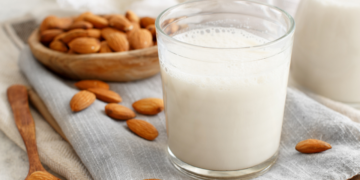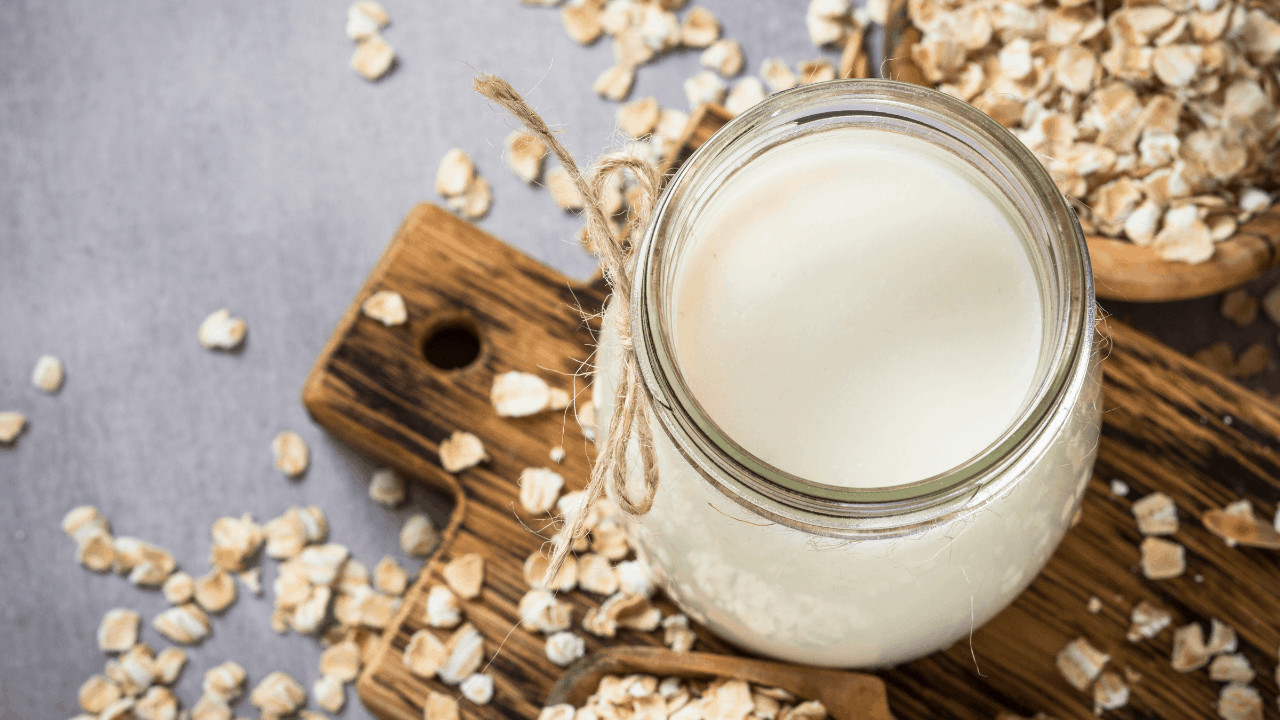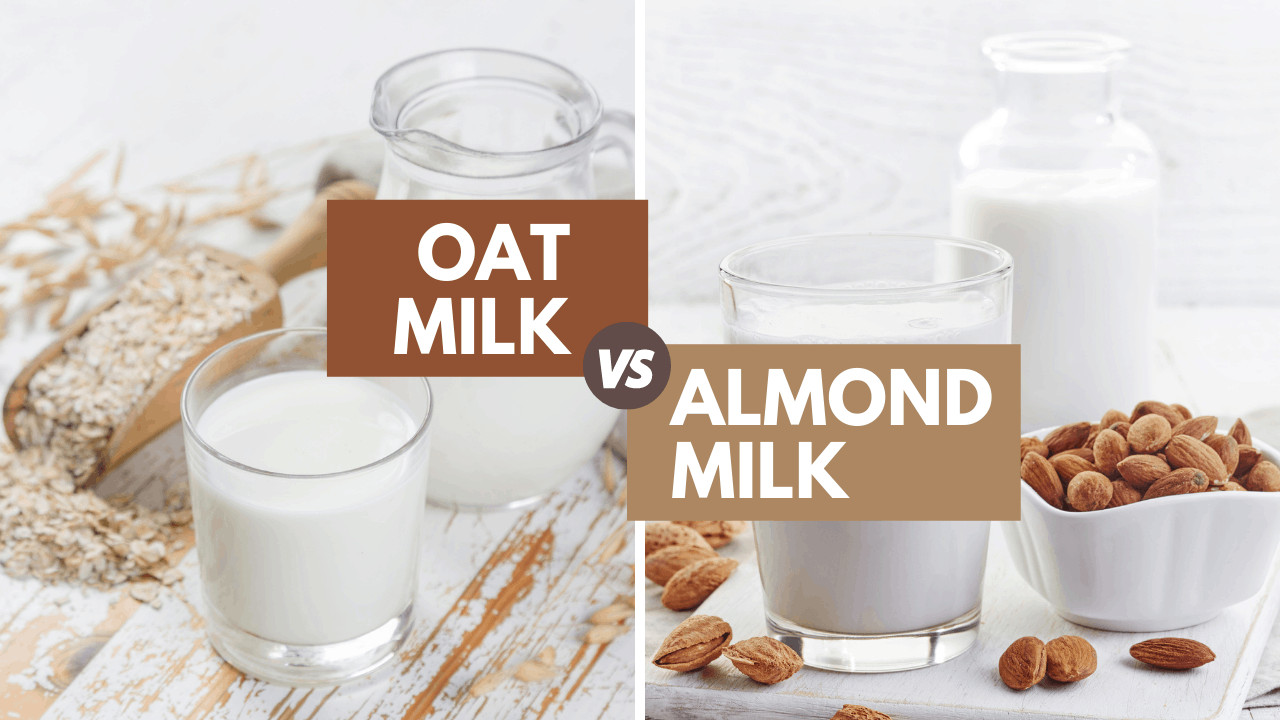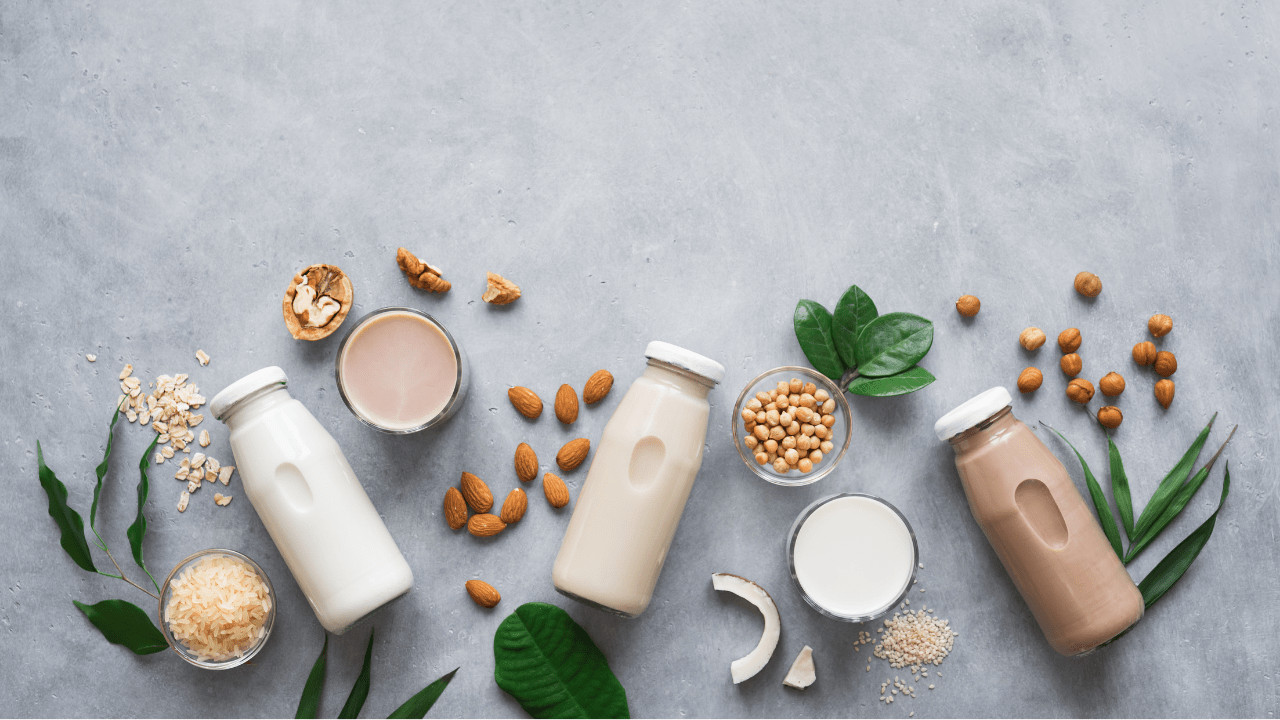
Almonds are part of the tree nut family with brazil nuts, cashews, macadamia nuts, pecans, and walnuts. Sadly, about 1% of people have an allergy to tree nuts. They can be allergic to one of these nuts, but not necessarily to all of them.
If you have an almond allergy, you might have a lot of questions in your mind. Can you drink almond milk? Can you have an almond milk allergy even if you are actually not allergic to almonds?
An almond allergy is triggered by the protein in almonds. This protein would be present in both raw almonds and almond milk. If you are allergic to one, you would be allergic to the other as well. Try other milk alternatives like hemp, soy and oat milk.
This article is all about almond milk and its associated allergy. Read on to learn more, so you can decide if you should incorporate almond milk into your diet or not.
What is the Difference Between Allergy and Intolerance?
Allergies are often confused with intolerance, but they are different bodily reactions. Here are the key differences you should know.
What is An Allergy?
Allergies are caused by the body’s immune response to a foreign substance. People can outgrow allergies, but they can also develop them throughout life.
The reason for allergies is still somewhat unknown, but we do know that some people’s bodies attack foods such as almonds. The top eight foods that most people are allergic to are dairy, eggs, fish, peanuts, shellfish, soy, tree nuts, and wheat. Food allergies affect up to 8 percent of children and 3 percent of adults.
Allergic reactions can range from mild to severe and life-threatening. You should always take them seriously. Here are allergy symptoms you should look out for:
- Anaphylaxis (closing of the throat, difficulty breathing, and racing of the heart)
- Eczema or other skin rashes
- Itchy throat
- Hives
- Sneezing
- Swelling on the face or mouth
Anaphylaxis is very serious. If you experience its symptoms, you should seek medical attention immediately.
The best treatments for allergies are allergy shots, medication or supplementation that can help reduce or resolve symptoms, or simply an avoidance of the trigger foods. The best treatments for active allergic reactions are medication and hospitalization, especially if the allergic reaction is severe.
What is An Intolerance?
Food intolerance mainly presents as gastrointestinal symptoms, such as abdominal pain, cramping, diarrhea, nausea, and vomiting. Like food allergies, food intolerances can have serious side effects over time if you keep eating the associated foods.
Common food intolerances include lactose intolerance (the inability to digest dairy), soy intolerance, gluten intolerance, and intolerance to fish or shellfish.
Are You Allergic to Almonds?
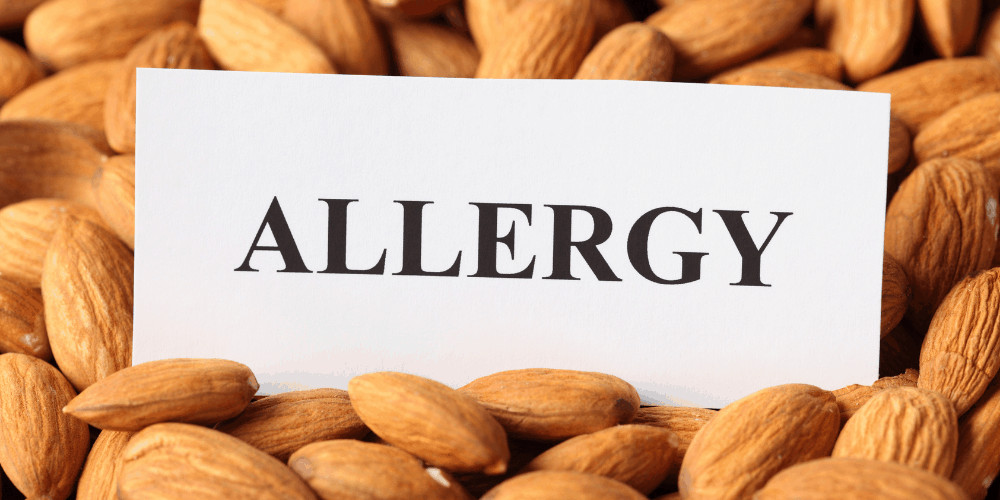
It’s difficult to pinpoint almond allergies specifically, but the easiest way would be to have an allergy test done at a doctor’s office. They could test for all different types of allergies and help figure out treatment options.
But if you find that you experience abdominal distress, difficulty breathing, skin problems, and other symptoms whenever you eat almonds, you may have an allergy or intolerance to the tree nuts. It would be best to remove almonds from your diet and talk to a medical professional to find out if you really are allergic or intolerant to almonds.
Can You Drink Almond Milk if You are Allergic to Almonds?
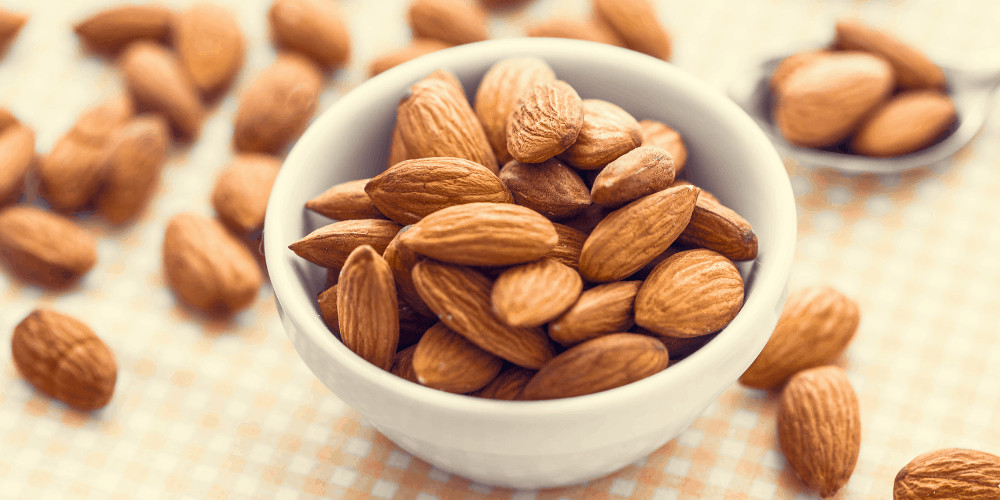
An almond allergy is triggered by the protein in the nut. When that protein is consumed, whether, from almonds or almond milk, the body’s immune response is to attack. This leads to symptoms like difficulty breathing, gastrointestinal discomfort, increased heart rate, itchy skin or mouth, and runny nose. Symptoms vary from person to person, but they may be worse in children than adults.
It’s important to seek medical help if you accidentally drink almond milk and experience health problems as your bodily reactions may even get worse over time.
Can You Have an Almond Milk Allergy Even if You Are Not Allergic to Almonds?
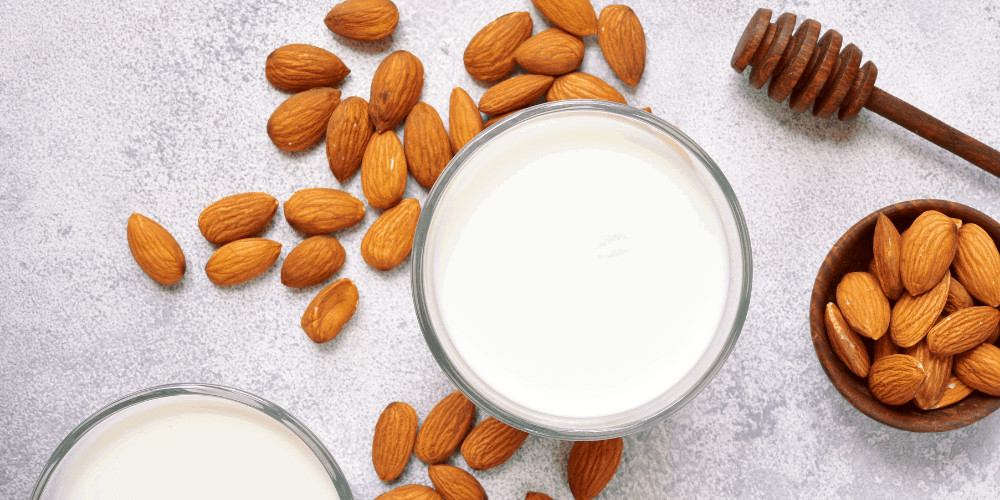
You can be allergic to almond milk even if you are not allergic to almonds or tree nuts. This is because you can still react to the other ingredients in almond milk.
The ingredients in almond milk include almonds, calcium carbonate, gellan gum, potassium citrate, sea salt, sugar, sunflower lecithin, Vitamin A palmitate, Vitamin D2, and water. Chocolate-flavored almond milk has cocoa powder too.
If you are allergic to one of the additives in almond milk, you would likely have a reaction when drinking it. It would be prudent to drink another type of dairy-free milk, like rice milk, soy milk, or other plant-based milk products.
Is Almond Milk Bad in General?
Many people drink almond milk because they think it’s the best option. But aside from allergies and intolerances, there are other reasons why you may want to avoid drinking almond milk.
Almond milk has a lot of additives
Almond milk is much more processed than traditional cow’s milk. It is made by processing almonds and adding nutrients, sugar, and cocoa(if it’s chocolate almond milk). It also has fillers and stabilizers.
One common additive that is used for thickening is carrageenan, which has been thought to lead to gastrointestinal distress. (People do say that removing carrageenan from their diet resolves symptoms).
Carrageenan has also been removed from the organic food list. This means that it cannot be used in any food that is labeled as organic.
Almond milk is low in protein
Almond milk (and other nut milk) is low in protein and many other nutrients when compared to cow’s milk. It contains only one gram of protein per one-cup serving. It can also contain over 17 grams of added sugar per serving.
It’s best to avoid drinking sweetened almond milk if you need to watch your sugar intake. This is especially true if you have a condition like diabetes or gestational diabetes (during pregnancy).
Environmental Effects of Drinking Almond Milk
It is often believed that almond milk is not good for the environment mostly due to 3 main reasons :
- It leads to excessive food waste– Almond milk leads to excessive waste because of the way it is produced. Almonds are processed, mixed with water, and strained. All the solids are discarded. Chefs and manufacturers don’t reuse them. What results is a ton of discarded, flavorless, and wasted almond pulps.
- It takes a lot of energy to grow almonds- Growing almonds require a huge amount of water to grow. According to one study from Penn State, it takes over one gallon of water to grow a single almond.
- The pesticides in nut farms are dangerous for bees-. The pesticides used by nut farmers are lethal to bees. Bees are crucial to pollinate almond flowers, and, in recent years, their population has been threatened. It also takes more bees to pollinate almond trees than any other crop, requiring extensive resources to produce almonds for milk.
Final Thoughts
If you are allergic to almonds or tree nuts, it’s best to avoid almond milk. Even if you are not allergic to almonds or tree nuts, you might still be allergic to almond milk because of its other ingredients. There are other reasons not to drink almond milk anyway even if you are not allergic. Almond milk is way more processed and has fewer nutrients compared to cow’s milk, additionally, It’s also not great for the environment.
If you are seeking a milk alternative, consider other plant-based options


